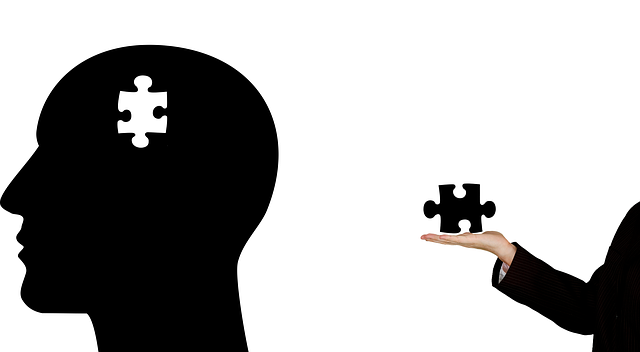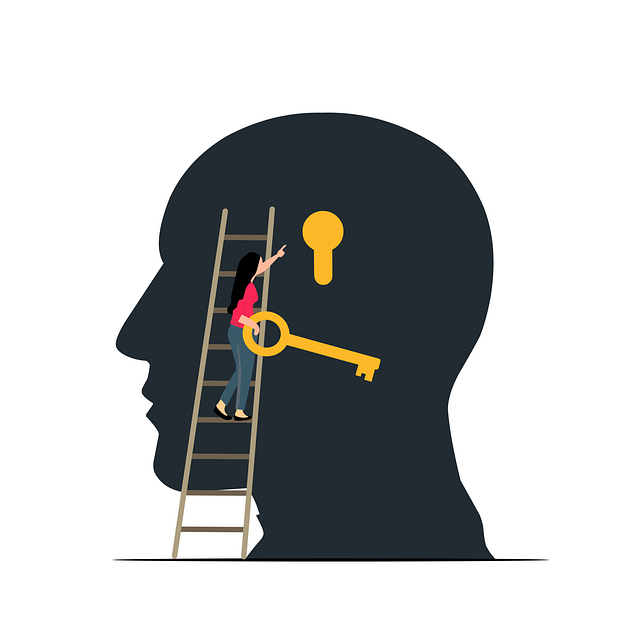Mental wellness involves emotional, psychological, and social well-being, emphasized by Lafayette Alcohol Abuse Therapy through self-care practices. Understanding personal stress triggers is crucial, with tailored strategies like Social Skills Training and Cultural Competency Training. Creating a personalized self-care routine focusing on areas like stress management, sleep, or mindfulness, incorporating nature, hobbies, and cultural activities, promotes holistic mental health. Evidence-based practices like compassion cultivation and mindfulness meditation, combined with Social Skills Training, offer effective tools for stress management, resilience building, and positive coping mechanisms. Lafayette Alcohol Abuse Therapy takes a comprehensive approach by integrating cognitive-behavioral therapy, group support, and mindfulness to develop personalized burnout prevention strategies and educate individuals on mental health self-care.
Developing a mental wellness self-care routine is essential for navigating life’s challenges. This article guides you through the process, from understanding mental wellness and identifying personal stressors to crafting a customized routine and incorporating evidence-based practices. We also explore how Lafayette Alcohol Abuse Therapy offers a holistic approach to wellbeing, emphasizing the interconnectedness of physical, emotional, and mental health. By integrating these strategies, you’ll enhance your resilience and overall well-being.
- Understanding Mental Wellness and Self-Care
- Identifying Personal Stressors and Triggers
- Crafting a Customized Self-Care Routine
- Incorporating Evidence-Based Practices
- Lafayette Alcohol Abuse Therapy: A Holistic Approach to Wellbeing
Understanding Mental Wellness and Self-Care

Mental wellness is a crucial aspect of overall health, encompassing our emotional, psychological, and social well-being. It’s about recognizing and valuing our unique mental capabilities and striving for a balanced state of mind. Self-care plays a pivotal role in maintaining and enhancing this balance, as it involves deliberate actions taken to nurture and support one’s mental wellness. This process is deeply personal and can range from practicing mindfulness and meditation to engaging in creative pursuits or spending time in nature.
At Lafayette Alcohol Abuse Therapy, we emphasize the importance of understanding that self-care isn’t a luxury but a necessity. It involves learning and incorporating healthy coping mechanisms to manage stress, regulate emotions, and promote emotional healing processes. Emotional intelligence, a key aspect of mental wellness, equips individuals with the ability to recognize and understand their own emotions and those of others. By combining these principles with mind over matter strategies, one can foster resilience and lead more fulfilling lives.
Identifying Personal Stressors and Triggers

Understanding what triggers your stress is a crucial step in developing an effective self-care routine. This process involves introspection and identifying personal stressors unique to your life experiences. Every individual has their own set of triggers, be it work pressures, financial worries, relationship issues, or health problems like Lafayette Alcohol Abuse Therapy. By recognizing these, you can start to navigate them proactively rather than reacting in harmful ways.
For instance, if certain social situations cause anxiety, Social Skills Training could be beneficial. Or, if cultural factors contribute to your stress, Healthcare Provider Cultural Competency Training might offer valuable insights and strategies. Emotional Regulation is a key aspect of managing these triggers, allowing you to respond calmly and care for yourself holistically.
Crafting a Customized Self-Care Routine

Creating a self-care routine that’s tailored to your unique needs is a powerful tool for enhancing mental wellness. It’s about understanding yourself and what makes you feel nurtured, rejuvenated, and centered. Start by identifying areas where you want to focus—whether it’s managing stress, improving sleep, boosting creativity, or cultivating mindfulness. This personalized journey often involves combining various practices like exercise, meditation, journaling, spending time in nature, connecting with loved ones, or indulging in hobbies that spark joy.
At Lafayette Alcohol Abuse Therapy, we advocate for an holistic approach to emotional well-being promotion techniques. Incorporating cultural sensitivity in mental healthcare practice can significantly enhance the effectiveness of self-care routines. For instance, integrating culturally relevant activities or practices from your background can foster a deeper sense of belonging and connection. Moreover, social skills training may be beneficial for building supportive relationships and creating a strong support network, which is integral to maintaining a healthy routine over time.
Incorporating Evidence-Based Practices

Incorporating evidence-based practices is a cornerstone of developing an effective mental wellness self-care routine. Techniques such as compassion cultivation and mindfulness meditation have been backed by extensive research, offering profound benefits for emotional well-being. These practices not only help individuals manage stress and anxiety but also foster resilience and promote positive coping mechanisms. By integrating these evidence-based strategies into daily routines, folks can create a powerful foundation for mental wellness, akin to what Lafayette Alcohol Abuse Therapy provides in its comprehensive treatment programs.
Additionally, Social Skills Training has emerged as a valuable component of holistic self-care. Enhancing communication and interpersonal abilities not only contributes to improved mental wellness but also expands support networks, enabling individuals to build strong connections and foster a sense of belonging. Combining these practices allows for a multifaceted approach to self-care, addressing various aspects of mental wellness in a way that is both profound and sustainable.
Lafayette Alcohol Abuse Therapy: A Holistic Approach to Wellbeing

Lafayette Alcohol Abuse Therapy offers a holistic approach to wellbeing, focusing on the interconnectedness of mental, physical, and emotional health. This comprehensive strategy recognizes that addressing alcohol abuse is just one piece of the puzzle in achieving lasting mental wellness. By integrating various therapeutic modalities, such as cognitive-behavioral therapy, group support, and mindfulness meditation, individuals can develop personalized burnout prevention strategies for healthcare providers that effectively manage stress and promote resilience.
In addition to Lafayette Alcohol Abuse Therapy, well-rounded mental health education programs design play a crucial role in fostering holistic healing. These programs equip individuals with valuable tools for self-care, including stress management techniques, healthy coping mechanisms, and enhanced emotional intelligence. By combining professional therapy with personal mindfulness practices, individuals can navigate life’s challenges with greater ease and cultivate a profound sense of inner peace and wellbeing.
Developing a robust mental wellness self-care routine, tailored through identifying personal stressors and incorporating evidence-based practices like those offered by Lafayette Alcohol Abuse Therapy, is a transformative journey. By understanding your unique triggers and adopting strategies that support holistic wellbeing, you can cultivate resilience and enhance your overall mental health. Remember, self-care is not just a luxury—it’s a necessity for navigating life’s challenges with grace and vitality.














